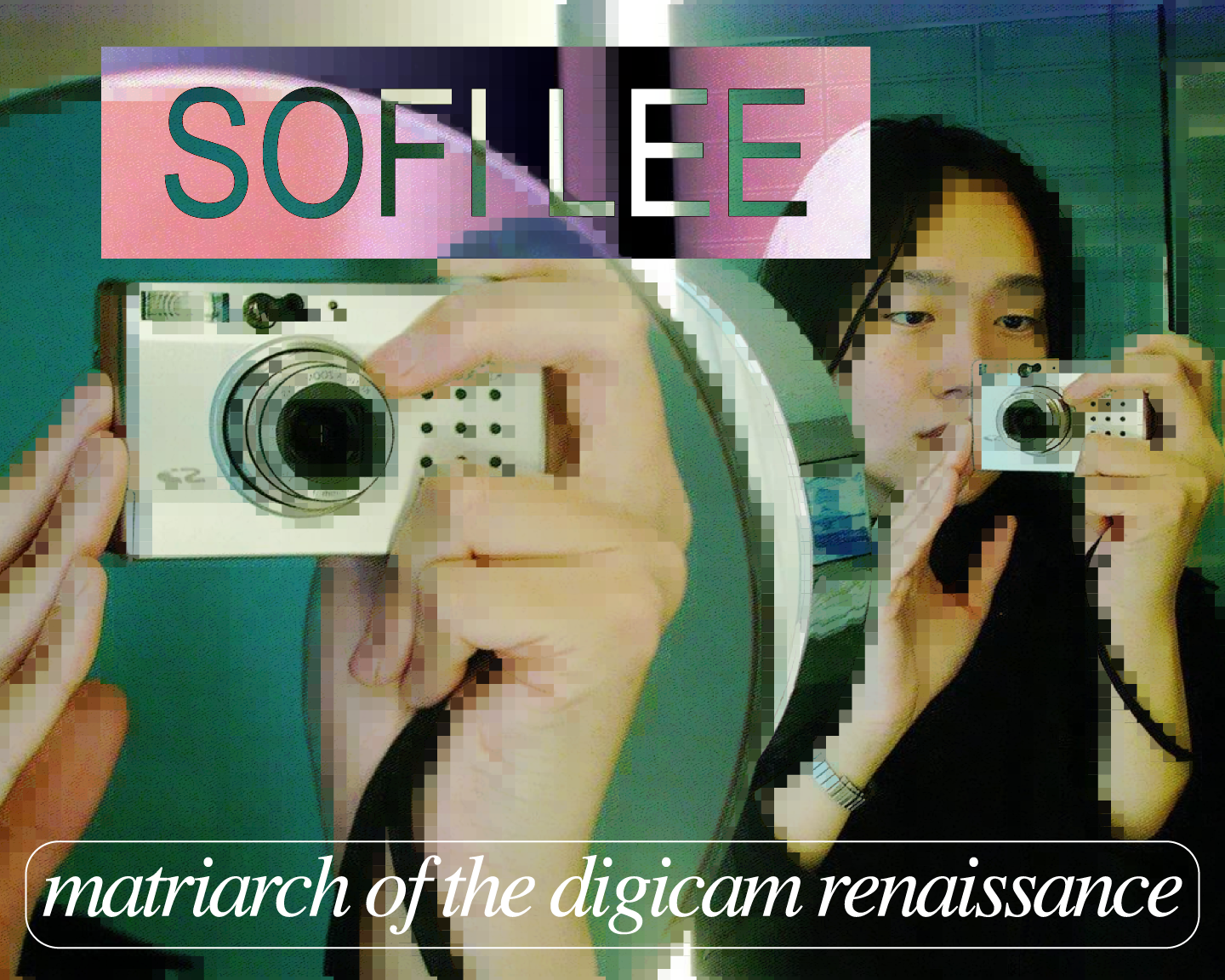In 2014 Sofi Lee started taking photos with old digital cameras, nearly 10 years later and the Digicam Renaissance is fully upon us. But beyond the social media trends or viral videos, not many people understand where this movement came from, and what made it possible. Sofi, along with a few others have helped to build a community of digicam lovers that is not only welcoming and inclusive, but also has just about every piece of information you could possibly want to start taking your own digicam photos.
I caught up with Sofi to chat about the digicam renaissance, niche internet aesthetics, and flip through some of her photos.
Check her out here or here.
All photos courtesy of Sofi Lee.
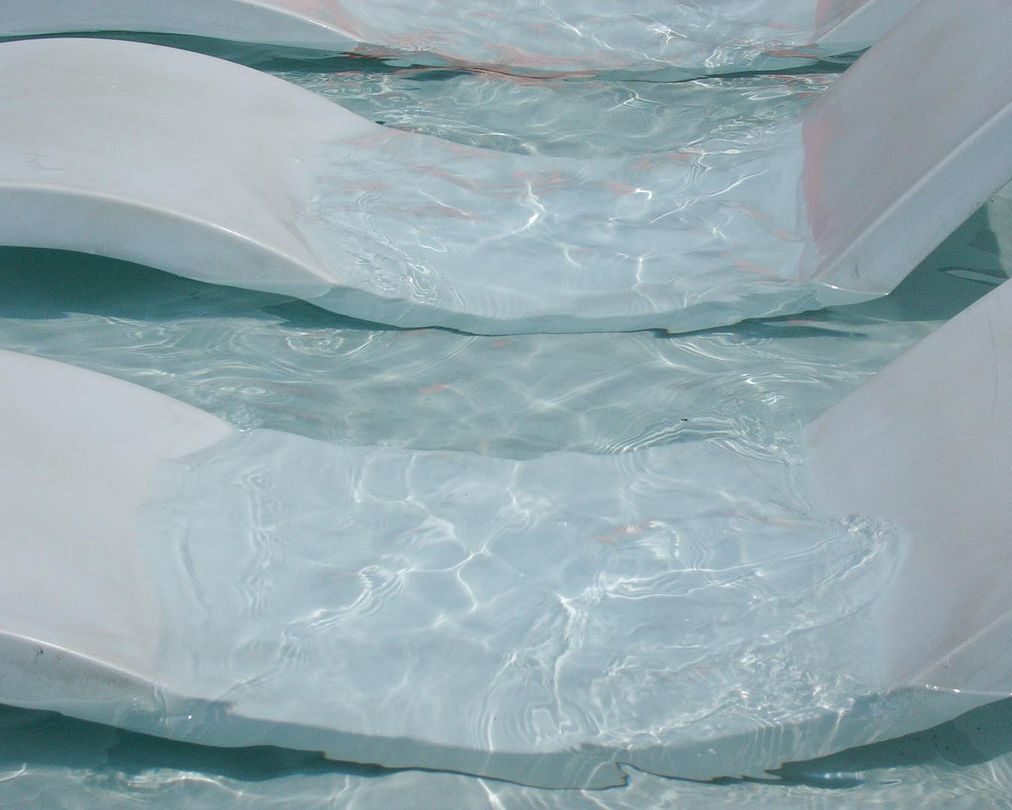
Hi Sofi! What are you up to today?
You actually caught me as I came back from an outing. I just saw Cocaine Bear in theaters. I love sneaking my digicam into the movies and other places where photography is forbidden, there’s a certain danger to it. I’m also obsessed with screens and enjoy the quality given to a photo taken of something on a screen. Today I shot on a Contax SL300R. These Contax Digis are having a little moment right now (and also getting crazy expensive!)
I remember you saying you downsized a lot when you moved to the Netherlands.
When I moved to Europe I basically got rid of all my digicams, mostly giving them away to friends. I actually gave my FX150 to a friend I made while working at a refugee camp near The Hague. One of the few that made it with me was the Olympus XZ1, which I really loved at the time, but I don’t really use it anymore because again the photos are still just too clean. Originally I was collecting specific digicams because they shot in RAW, and now I almost exclusively shoot JPEG. That’s been a major shift in the way I shoot since I’ve moved to Europe. I think Color is where a digicam really excels and an area where their unique qualities come out.
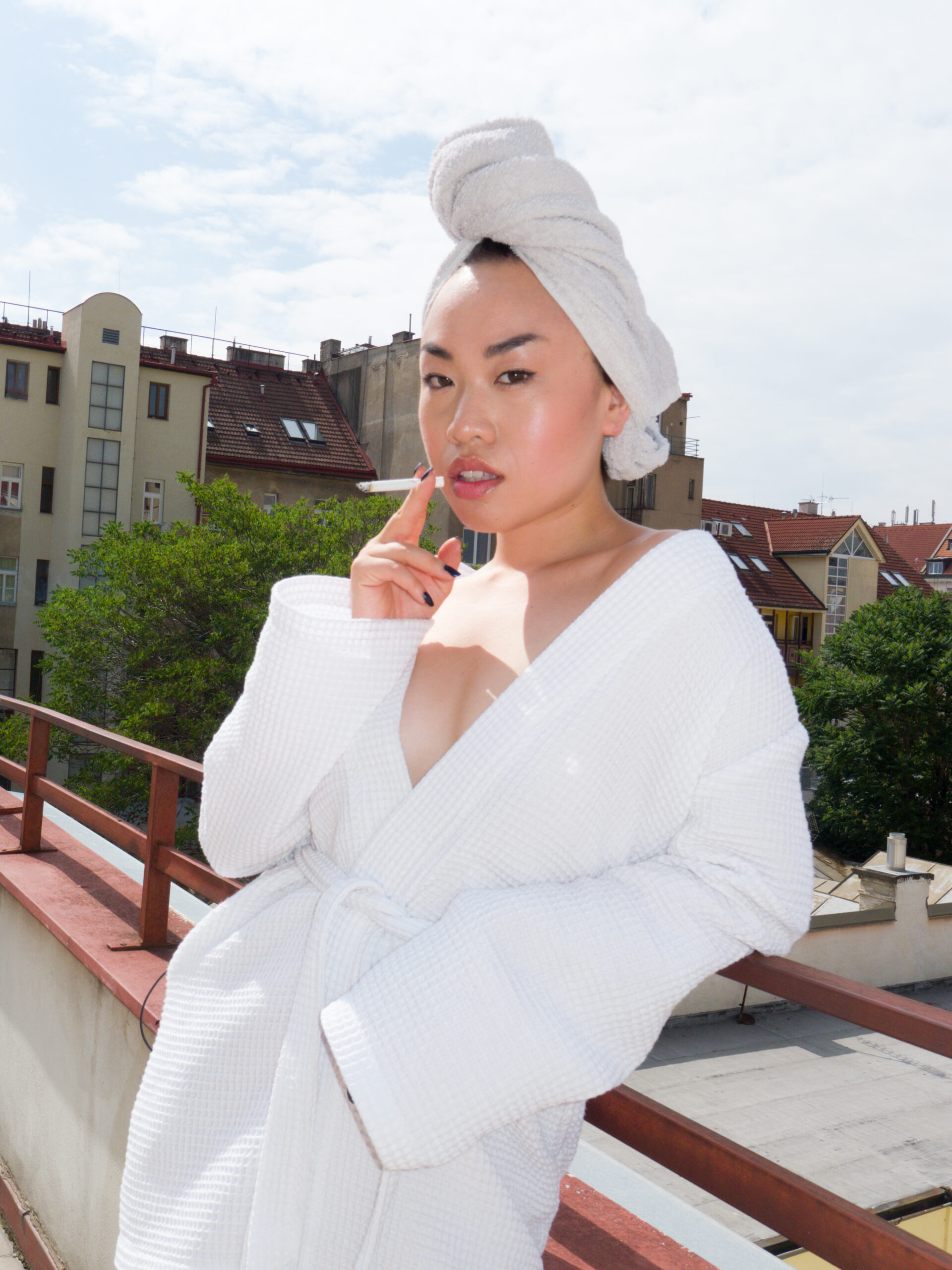
When were you first drawn to using digicams?
In 2014, I was falling into all the classic pitfalls of beginner photography. I had a 50mm 1.8 lens and was enthralled with the idea of a shallow depth of field. That’s what was popular and considered professional at the time. Excessive bokeh was completely inescapable from stock photos, website templates and even movies.
Around that time I came across the Kyocera Finecam S3 randomly at a thrift store. I feel like it perfectly speaks to the idea of a digital camera and is so iconic almost to the point that it’s part of our subconscious. It looks antiquated yet futuristic. When I first saw it I was actually dissuaded from buying it because I was told it would be a pain to find batteries for.
Almost a year later, I chose the Powershot G2 as my first digicam and started my Summer of G2 project. I wanted something that was distinctly from another era to kind of push against that singular aesthetic that had a chokehold on photography. But it also had a lot of the important manual features that I was used to in a professional camera, not to mention the G2 looks pretty iconic.
Are those manual features still a part of your creative process?
When I first started using digicams I was interested in pushing them to their fullest extent and getting them to be as functionally close to a DSLR as possible. Since then I’ve definitely progressed into embracing the specific qualities of each camera. Now I would say it’s a blend of some manual features and auto capabilities.
So your main goal is for the character of the camera to show through the photo?
Exactly, in later years these companies started to perfect the CCD sensors and images just started to look too clean. The Lumix FX150 is a perfect example of this. It has 14.7mp and shoots RAW. Yes, there is still some digicam uncanniness to the images but I like to joke that it’s the Hasselblad of digicams. I stopped using it around 2019.
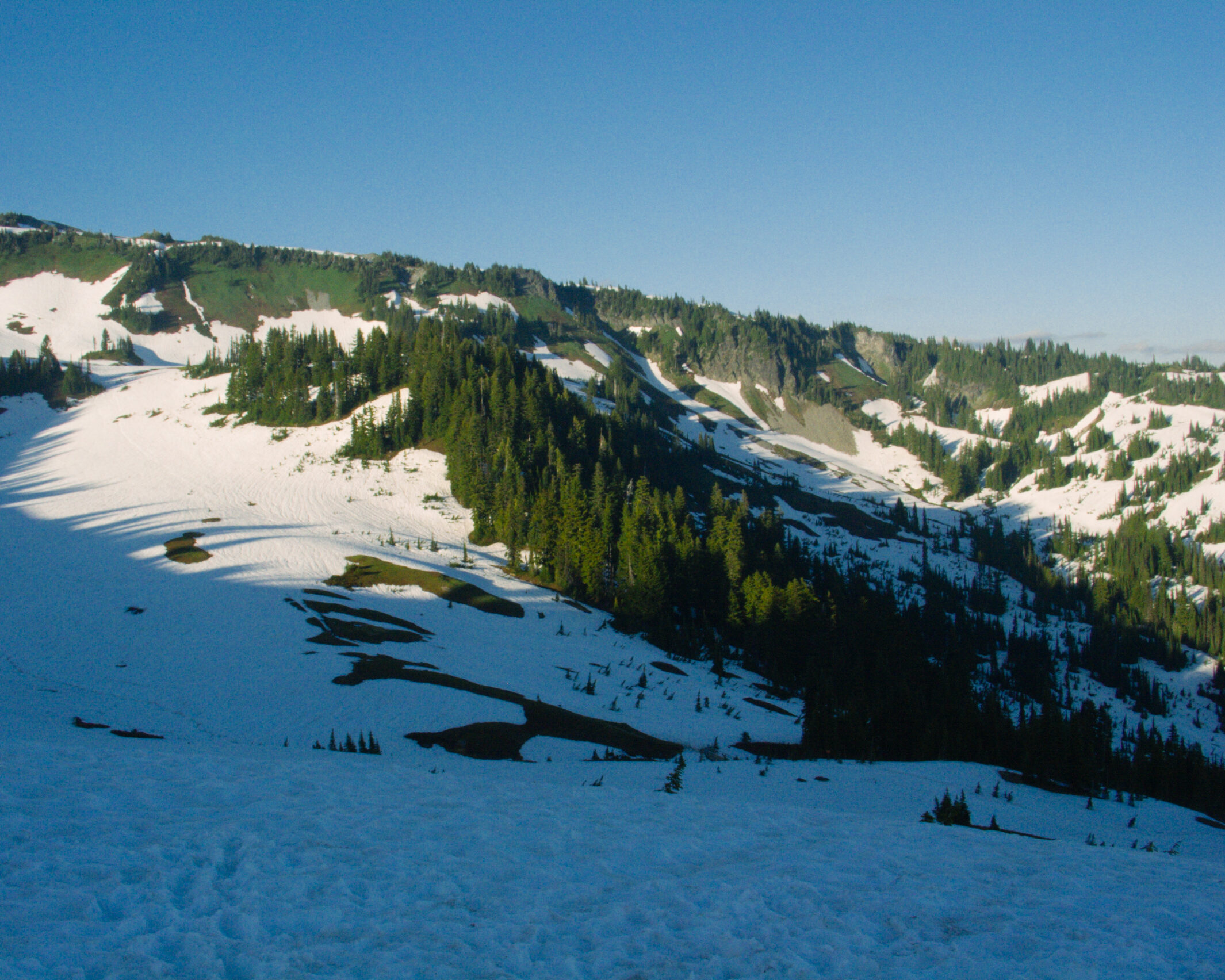
Although each camera has its unique qualities, I feel like there is an underlying texture that comes with a lot of these images, especially in your photos. How would you describe that?
I totally agree, specifically the way that some of the highlights and colors bloom. It has a very similar feeling to when you look at a film positive or slide film and the light is coming through it. Also similar to the chromatic aberrations or halation of a projected image. But I also do not want to root all of this in the aesthetics of film. There is also a kind of noise that is unique to digital photography, a digitalness that is caused by interference from the electronics themselves which I try to highlight in my recent work.
I’ve never heard that character described so well. Is that a quality you try to chase or is it just something you come across from time to time?
I am in search of a specific digital quality that I don’t think can be expressed otherwise, but my shooting style is so heavily impacted by the camera I’m using at the moment. A lot of people come to me asking for camera recommendations but I think the camera you choose needs to be what speaks to you.
I’ve noticed that you don’t necessarily avoid portraiture but it seems like most of your shots are more focused on cityscapes and spaces.
When I was living in the US I shot a lot more portraits, I was doing it for client work and I had a very busy social life so I was taking a lot of photos of friends. That changed a lot when I moved to Europe; I’ve become more introspective and I’m very drawn to the serenity that comes with photos that don’t have people in them.
Empty spaces are interesting to me because of the way that they have been touched by people who have ultimately left. Digicams have been used a lot to take photos of people so it is interesting to see what else they can be used for.
When I first moved to Europe I started listening to a lot of outsider music and I got really into The Shaggs. Music like this makes you really think about what music is and why we consider certain music to be good or bad.
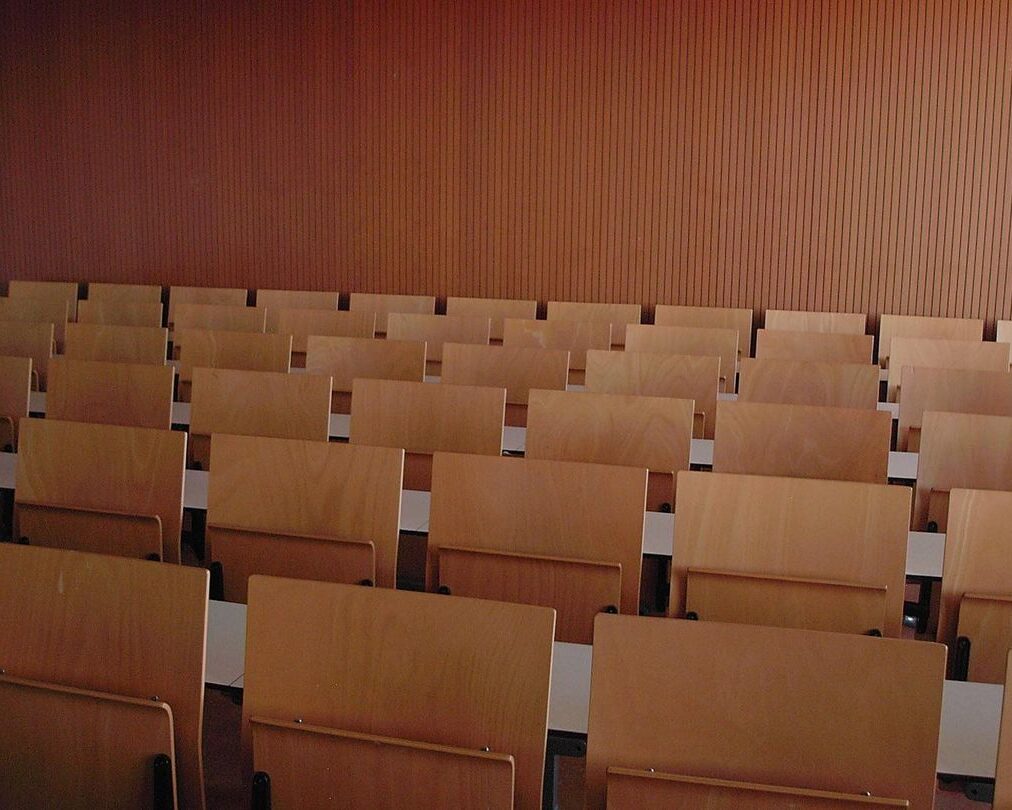
Do you think certain styles of photography could ask the same question?
As a photography student in trade school, I felt like most photography I was exposed to had a lot of illusions built around it that we take for granted. Most people don’t really think about the aesthetic boundaries that we put in place and why they are there.
Once of my biggest inspirations at the time was Jean-Luc Godard. Most of his films were centered around the idea of destroying the illusion of cinema. His work really inspired me to create more art that commented on the medium. Of course, living in a post post-Godard world now, his critiques are so embedded in all cinema.
Typically a photo is supposed to be a very pure representation of reality.
I think digicams are a powerful way to push against the idea of what photography is supposed to look like. For example, Ansel Adams and the rest of f/64 established so many aspects of photography that we consider to be inseparable from the medium now.
You might think about photography as “capturing beauty” but honestly I think of this kind of beauty as quite sterile. You can definitely look at this photography under the lens of manifest destiny, western expansion, etc. I think at its roots photography is kind of inseparable from that.
One of the main reasons I’ve been so drawn to digicams is that I feel like they have an alternative set of values to them. There's nothing about them that is objectively beautiful or correct.
Digicams are such a consumer-focused product, it is almost like it’s in their DNA to help deconstruct these ideas.
Sure, I think their toy-like appearance is definitely part of the appeal. At the end of the day they come with so many limitations, which from a creative standpoint is really powerful. I think one of the best ways to find out who you are as an artist is to engage those limitations and to understand what you’re going to accept or not accept.
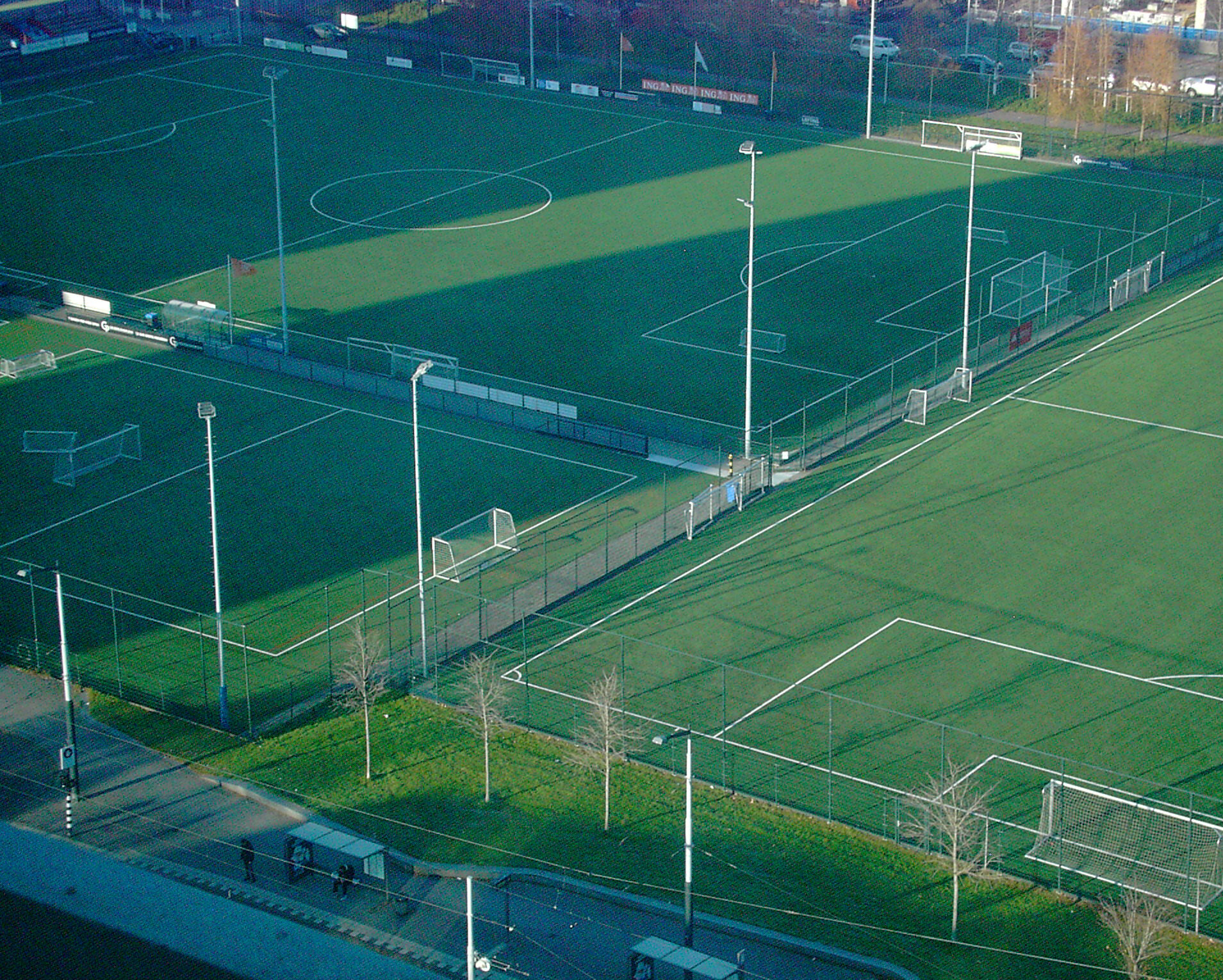
Wanna talk a little about digicam.love and how it started?
Yes, so digicam.love is a collaboration between me and Bao. We originally met online through my friend Una Blue. I was in NYC at this event back in 2016 for an Internet sociology conference but we just ended up spending the whole weekend together. I saw her again after seeing some family in Boston and that’s when I suggested she get a digicam. We went to a Bookoff in Manhattan and we ended up finding her childhood digicam. We walked around NYC, popping into a lot of the off brand electronic stores and taking photos.
Two weeks later, she messages me suggesting we make digicam.love, and at the time there were so few people interested in digicams. My interview with DPReview had just come out.
I remember it was really hard to find any info about them at the time.
I had been shooting digicams for four years by then and it just seemed like a completely outrageous thing. My colleagues at photo school thought I was crazy. Professors were telling me I needed a “real camera.” If you look at the comments section [of the DPreview article] people are saying like, this is insane, I can’t believe this got published, or just generally hating on the photos. There’s probably a bit too much of an emphasis on me being a professional in the article but I think it ultimately worked to my advantage.
You’ve made an effort into creating a community that is very open and welcoming. It’s very impressive to me, I feel like you don’t find that in any other creative fields.
I think one of the really cool things about it is that we aren’t just an online community, we also have real life meetups. You made a point earlier about a shift in the way the internet has impacted creative projects. What’s interesting is that now there’s so much more to being a photographer than just taking photos. At this point I don’t even know if photographer is the right word for who I am. I engage with the photographic medium but I’m really interested in building a community.
I do sometimes feel like we are all playing artists on social media and method acting as creatives.
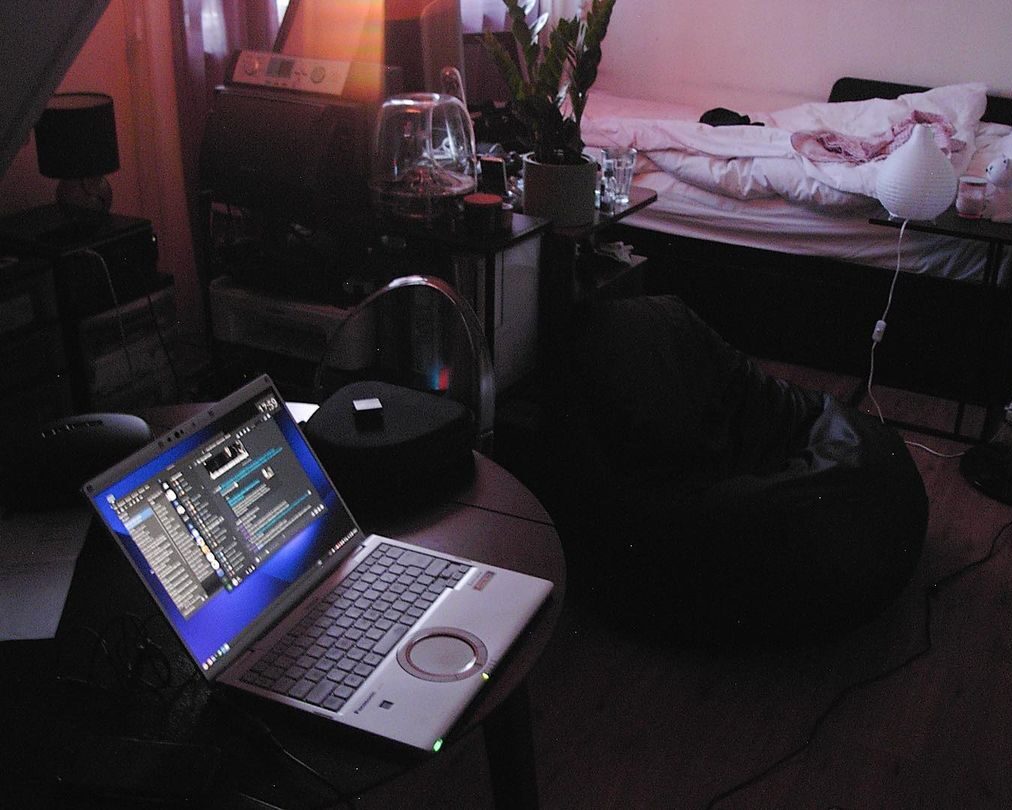
Do you get approached by brands for your work as a photographer? Especially now with the aesthetic leaking into certain ad campaigns.
Honestly not really, I feel like a big part of it is that my work has no intention to be marketable. Someone actually commented that this photo kind of looks like a 90s laptop ad. But I think it’s clear that I’m not interested in building a commercial portfolio. I’m much more interested in talking theory and philosophizing about what photography can be.
I’ve noticed in the digicam renaissance a lot of people want answers for what they’re seeing and end up talking to people who don’t know what they’re talking about. The NYT article is a great example of this and I was pretty unhappy about that piece. It’s not that they didn’t mention us, but I felt like they had a very myopic view of what a digicam was. People of all ages approach me all the time trying to get into digicam photography and I find the reasons for doing so are pretty diverse. The article essentially boils it down to “the images are shitty.”
Not to mention the cycle of corporations co-opting styles of photography and draining it of their meaning.
It’s an inevitable part of capitalism and I do think this style will eventually be co-opted. I think as long as there is a paper trail talking about who was there before that’s all that matters. I personally never expected to get any attention for this and I don’t want to be an influencer but I do love building the community and talking to people about my interests.
We have a lot of discussions in our community about the fact that all of these cameras are going to die, they have expiration dates. They are all ticking time bombs, and the frenzy of people being so into them is actually accelerating that timeline.
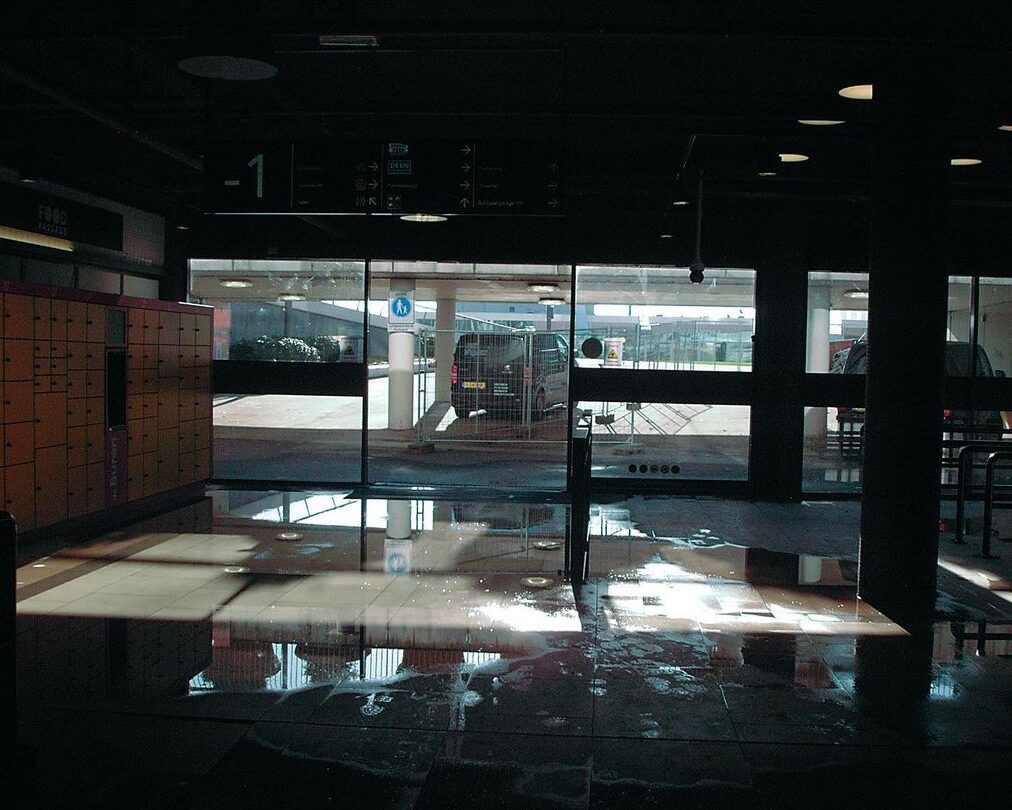
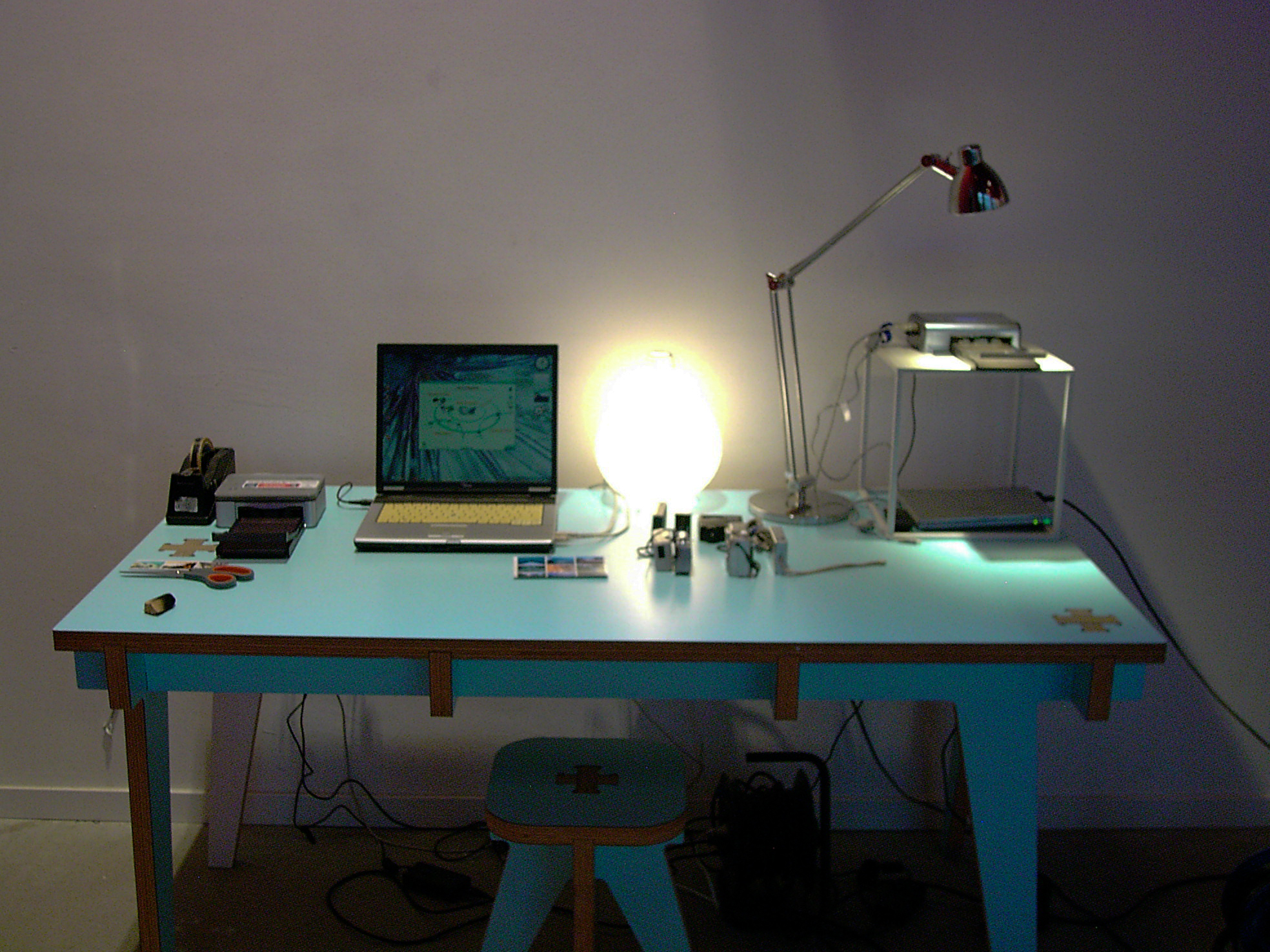
Do you think nostalgia plays into the adoption of people using digicams?
Nostalgia is such a really personal feeling, and it can also easily be weaponized. In a lot of ways it's the ultimate conservative emotion, like wanting to go back. If you look at most far-right rhetoric, a lot of it heavily relies on nostalgia as a manipulation tool. But of course we are all shaped by nostalgia, if you look at vaporwave it's this obsession with a time that people didn’t get to experience and I definitely relate to that.
When I make my work, I don’t want nostalgia to be part of it. But I do have an emotional connection with digicams. For me it’s more about finding beauty in things that have been cast aside and finding meaning in something that’s considered obsolete.
"For me it’s more about finding beauty in things that have been cast aside and finding meaning in something that’s considered obsolete."
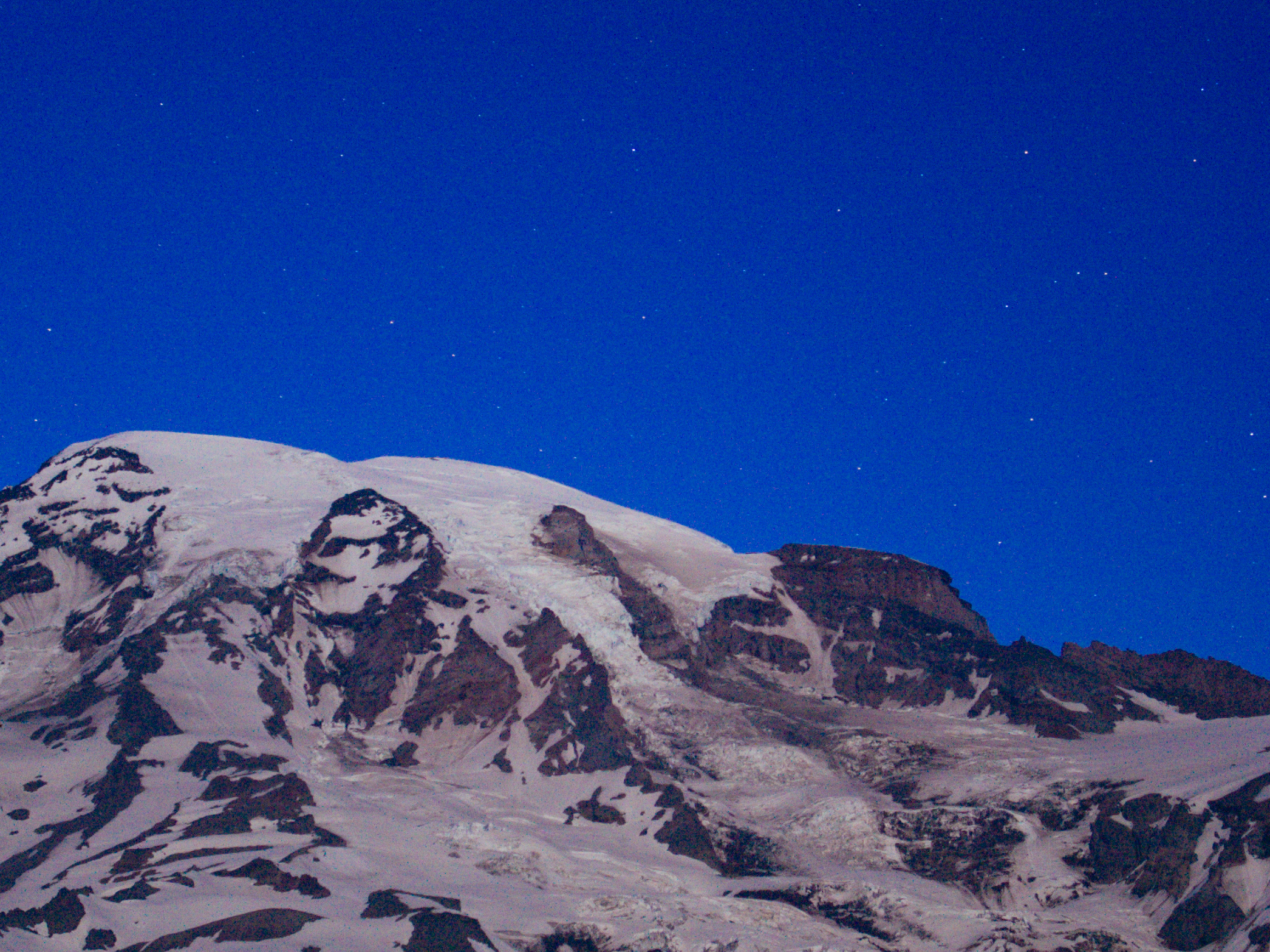
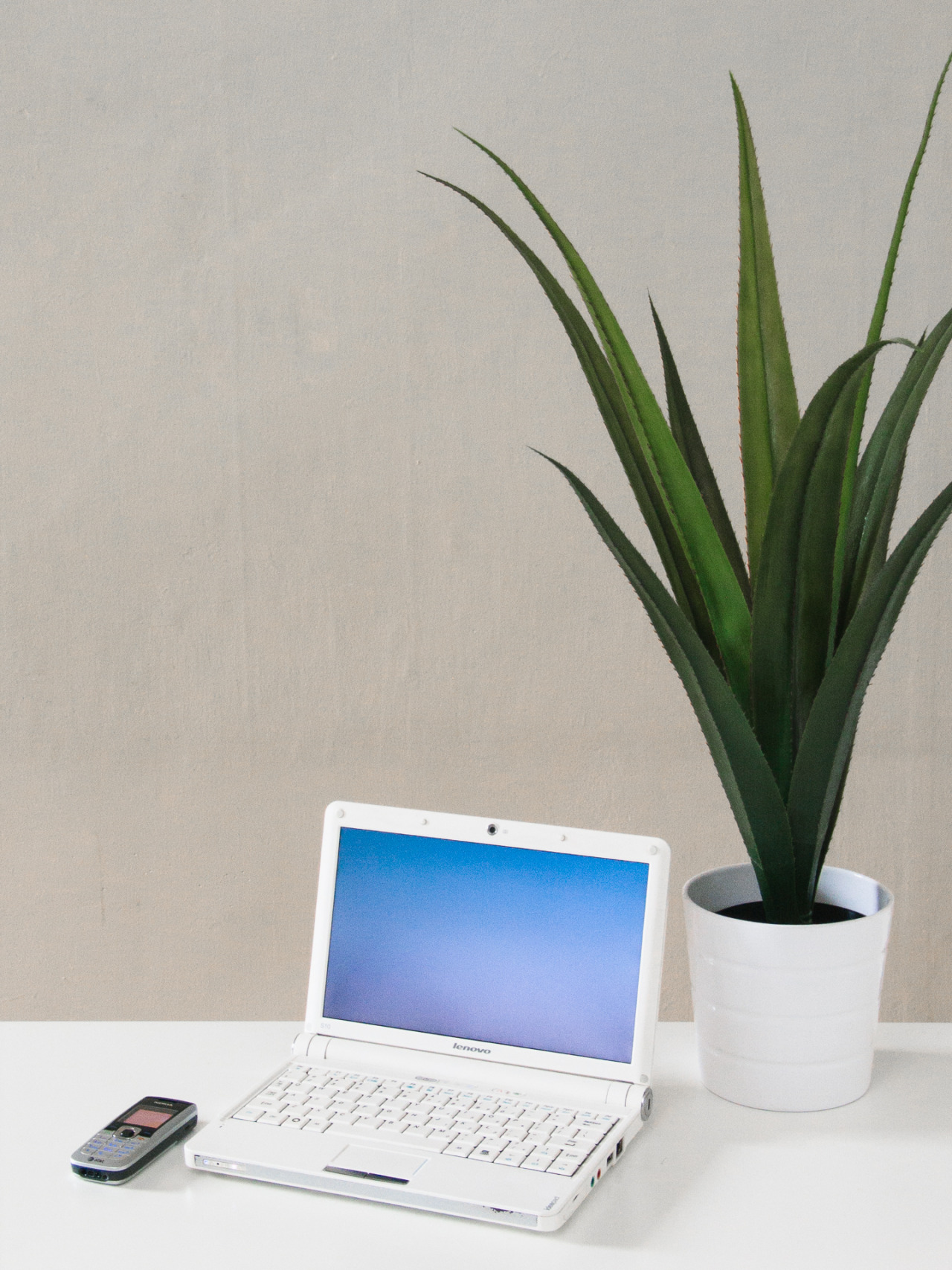
And that’s a big theme with your project Kin.Wav too right?
Yeah Kin.Wav was kind of my pastiche of KinFolk which was the slow living publication at the time. It was the epitome of 2010s yuppie aesthetics. I kind of deliberately ripped off their style and juxtaposed it against these electronics from the early 2000s.
Between cameras, other electronics, photos, and music it seems like you’re a big collector in everything that you do.
You could definitely say that. It’s part of how I engage with the world. If you dive into my hard drive I have folders upon folders of stock photo collections. I love to sort music by chord progressions, I have a playlist of every song I could find that uses chord progressions based on Pachelbel's Canon, I have another folder of every blue album cover.
I’m also affiliated with the Cari Institute, they were the first group to identify Y2K as an aesthetic movement.
It was a big moment for film photography when Kendall Jenner & Frank Ocean started to show off their Contax cameras, do you feel like a moment like that could be coming for digicams?
Honestly I feel like it’s already here, I mean there was that photo of Bella Hadid with a digi that totally blew up. But yeah it is so funny when celebrities come in and act like they invented a trend but honestly it doesn’t matter to me at all. My goal is not to become some sort of photo celebrity or like the number one digicam photographer. For me all that matters is that I’m engaging with the community and helping people who are interested in digis.
As a creative, what do you do to help manage your mental health?
For me, one of the things that really helped me get through the lockdown was going on photo walks. A lot of people have told me how digicams have helped them go and get outside and not stay inside all day. However, I’m weary of individualistic approaches to mental health, I feel like the times when I’ve felt healthiest is when I’ve been connected to a community.
Thank you again for chatting and providing so much insight on your process and the community!
Thank you!
